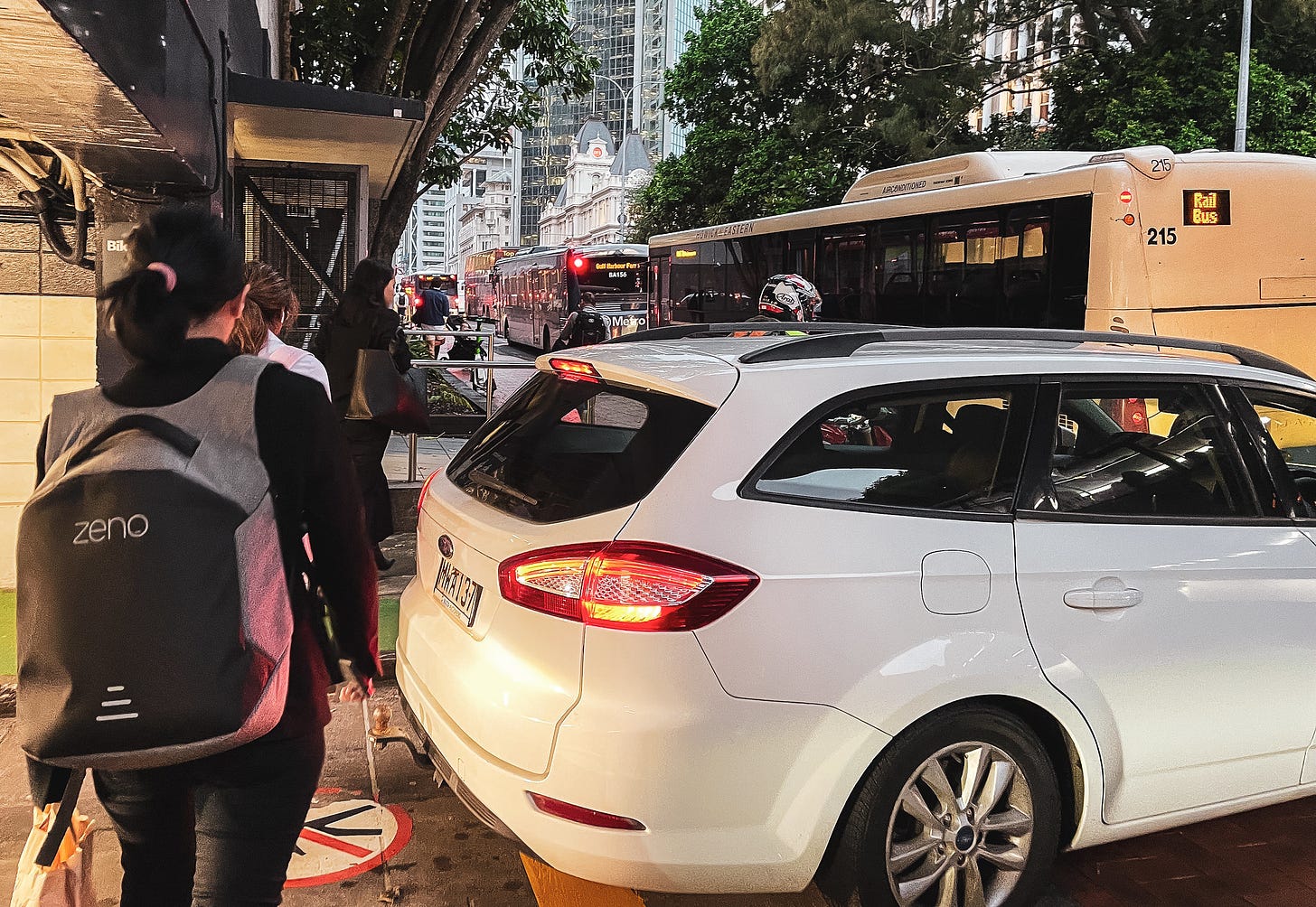
Morena. Long stories short:
Simeon Brown is pushing ahead with a congestion charging plan that centralises control in Wellington and fails to first show the benefits to drivers or offer public transport alternatives, guaranteeing an easy policy-killing ‘brand new tax’ backlash.
Louise Upston has launched an evidence-free new toughening of benefit sanctions and plans electronic controls of half of benefit spending, just as the Reserve Bank is deliberately engineering higher unemployment to offset inflation partially caused by the Government’s own actions.
Simeon Brown looks set to order power companies to build a new gas-fired power plant to try to control power prices, which are forcing mass layoffs and factory closures, along with pushing up inflation.
A survey of 650 builders finds the Government’s freezing of funding for Kāinga Ora and local road and water projects has caused a collapse in builder pipelines of work that means they’re now working at barely two-thirds capacity, despite massive housing and infrastructure shortages.
The Top Six for August 13
Here’s the top things to note in Aotearoa’s political economy around housing, climate and poverty on Tuesday, August 13:
1. ‘Show us the buses and the money first’
Transport Minister launches Beehive-centric congestion charging plan
They never learn.
Market-friendly politicians and infrastructure economists always talk up the benefits of congestion charges as a ‘win-win’ way to manage demand and reduce congestion without having to build massively expensive new motorways and roads. But they usually fail to account for the massive backlash easily engineered by opposition politicians accusing the charger of a imposing a ‘brand new tax’ and not offering alternatives.
Yet that’s exactly what Transport Minister Simeon Brown did yesterday in announcing plans to legislate from later this year to allow ‘time of use’ or congestion charging. The backlash started within minutes and is already brewing around a couple of key projects in Tauranga and Whangaparāoa, where locals are already up in arms about tolls on new roads.
His comments yesterday hinted at what he had already gotten wrong:
“We need the public to see the benefits, and we need a scheme which will be enduring. If you look around the world, there's been a number of schemes designed and implemented. They've fallen apart because they haven't had that public acceptability.” Simeon Brown in his announcement.
Brown has spent the first nine months as minister defunding public transport and planning to build big new Roads of National Significance (RONS) that congestion charges are supposed to avoid and which will see charges in one city siphoned off to pay for roads in other cities under Brown’s NZTA-focused centralised approach.
The backlash was fast and shows that any effective congestion charge has to have the support of both councils and the main opposition before launching.
Here’s Labour’s Auckland issues spokesman Shanan Halbert in a statement less than two hours after Brown’s announcement.
“The National Government seems intent on increasing cost of living pressures on Aucklanders with higher vehicle registration fees, public transport fees, a future hike to fuel tax, tolls roads and congestion charging.
“International research tells us that congestion charging only works if there are viable and affordable alternatives. Labour had ensured there would be alternatives to make sure we saw the behaviour change that Auckland needs, but Minister Brown has not invested in things that get people out of cars. The congestion charges are nothing but a revenue generating exercise for the Government.” Shanan Halbert in a statement
2. Toughening sanctions that welfare experts say don’t work
Social Development Minister Louise Upston has announced tougher benefit sanctions and plans for electronic controls on half of beneficiary spending. They are driven more by political agreements with ACT on the electronic card controls and a perception that beneficiaries are lazy and not bothering to apply for jobs.
The problem there is no conclusive evidence sanctions work to increase employment rates and the cards create an infrastructure for intense monitoring of spending. In my view, it also begs the question: why wouldn’t this also be done for all beneficiaries, including those getting NZ Superannuation.
The gold card infrastructure is already in place. The hard-to-justify political difference in perceptions of course is that, somehow, a beneficiary aged 64 is lazy and needs to be forced out to work, while the same beneficiary aged 65 deserves to not only get a higher benefit, but can not work for as much as they like, as well as keep extra tax-paid earnings or (non-tax-paid) assets without punishment.
3. Is this what it means to be ‘back on track’?
EBOSS survey of 650 builders finds slump in project pipeline
The BRANZ-EBOSS biannual survey of 650 builders was published yesterday, finding a collapse in their pipelines of work in residential, infrastructure and commercial construction in the last 12 months as the new Government stopped the biggest house builder, Kāinga Ora, from building new homes, and froze capital funding for council road and pipe building plans. Here’s the key details:
4. Quote of the day
Bolding mine
“I’m so upset with the huge price increase. I barely could afford to go to the doctor before - had to save for weeks to afford an appointment. Now it seems it a service only for the very wealthy...The new government funding allocation for primary healthcare is sickening, when they can afford tax breaks for landlords,” a South Island patient quoted in this explainer on big increases in Doctors fees by Stuff’s Annemarie Quill
5. Chart of the day
‘Why can’t these beneficiaries get a job?’
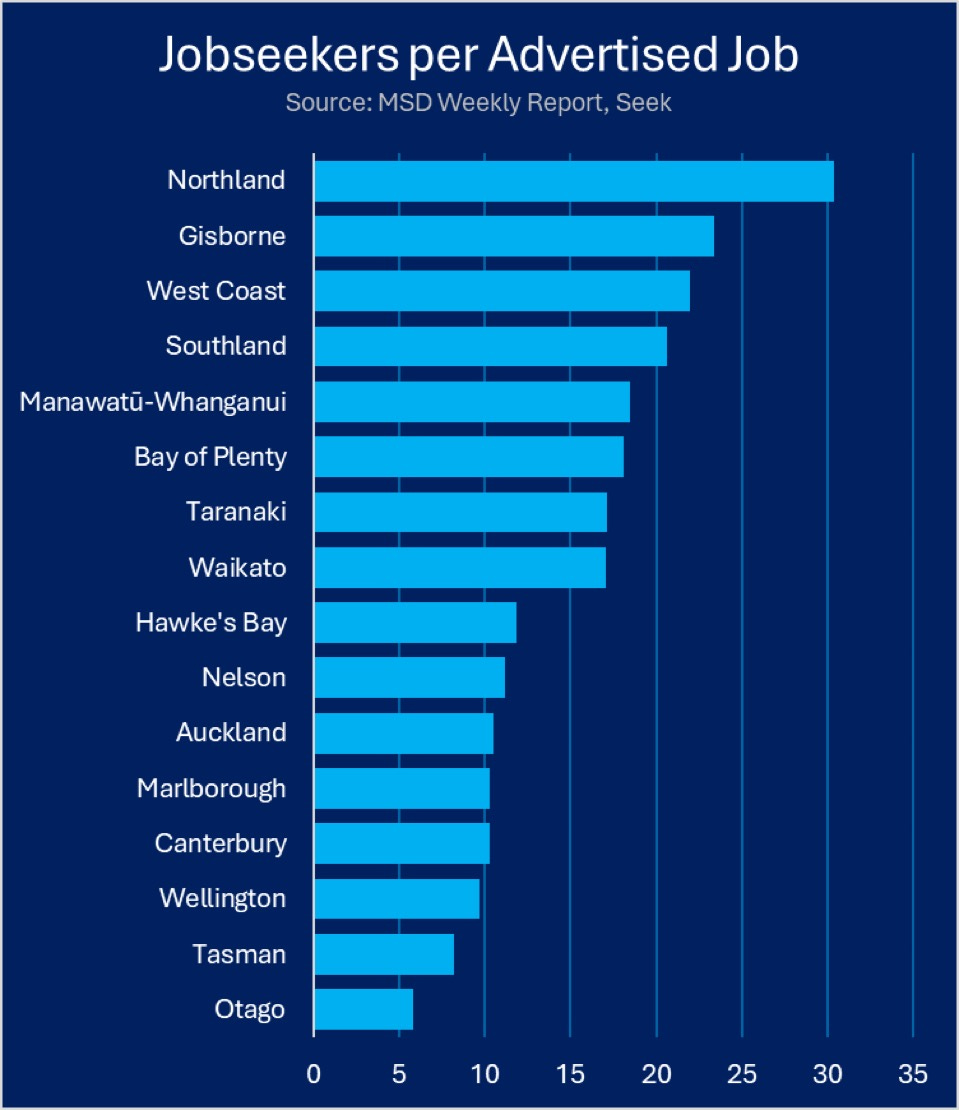
6. Climate graphic/chart/pic of the day
More than a quarter of new car sales in California are now EVs
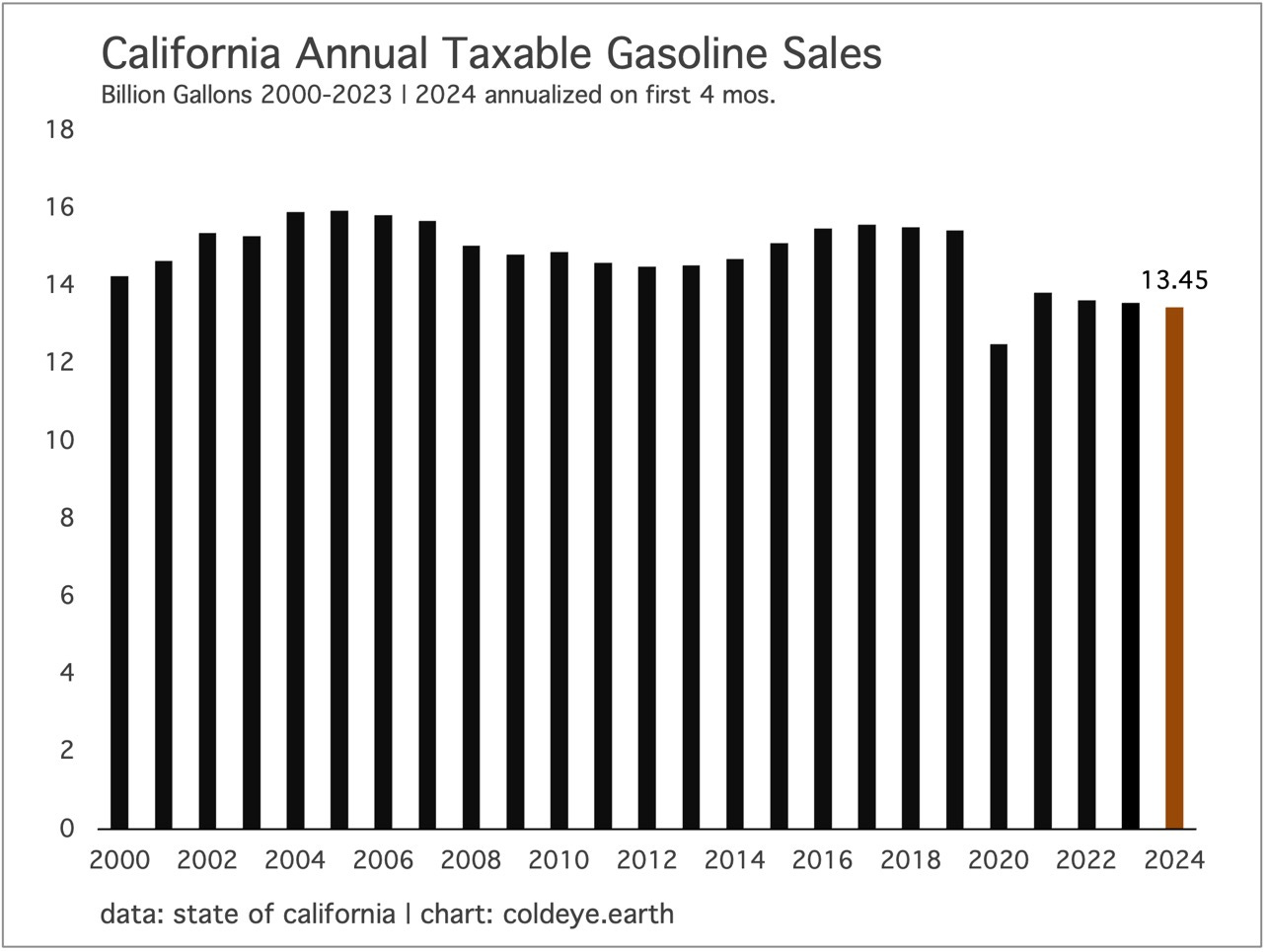
The best of the rest
Top Six scoops and breaking news for August 13
Health Scoop: Cancer patient may die after months languishing on waitlist Newsroom’s Marc Daalder
Electricity Scoop Government set to order power companies to build new gas-fired power plant and review entire sector The Post-$$$’s Tom Pullar-Strecker
Science Scoop: Govt set to merge Crown Research Institutes and take ‘Innovation’ out of the Ministry for Business, Innovation & Employment (MBIE) BusinessDesk-$$$’s Dileepa Fonseka
Health Scoop: Dunedin hospital staff report hundreds of equipment sterilisation failures a year RNZ’s Kate Green
Inflation Scoop: Visa fee revenue more than four times Immigration NZ's forecast deficit RNZ’s Russell Palmer
Justice Scoop: Top cop accused of lying, manipulating witnesses in controversial murder case.The Press-$$$’s Mike White
Top Six deep dives, columns and op-eds for August 13
Politics Deep Dive: Seymour's plan for tipping millions of dollars into Pharmac - and Big Pharma RNZ’s Guyon Espiner
Transport Deep Dive: Decisions over $830m road raise ire of community it’s meant to serve Stuff’s Erin Johnson
Climate Deep Dive: Accepting more frequent road closures along Banks Peninsula may save ratepayers money, as the Christchurch City Council considers a plan to adapt to rising sea levels. The Press-$$$’s Sinead Gill
Health Explainer: GP fees explained: Why some people pay three times more in same city. Stuff’s Annemarie Quill
Health Deep Dive: GPs says the health system faces “complete collapse” within 2 years when “people will be dying who shouldn’t”. The Press-$$$ Mariné Lourens
Column by Simon Wilson Mayor Brown makes flogging jokes while Minister Brown hints Beehive could control Auckland's transport NZ Herald-$$$
The Kākā’s Journal of Record for August 13
Poverty: Social Development and Employment Minister Louise Upston announced a program of new sanctions for beneficiaries, including half a person's benefit being put onto a payment card usable only for a limited range of essentials. NZ Herald, Otago Daily Times, 1News
Transport: Transport Minister Simeon Brown announced legislation to enable ‘time of use schemes’ meant to reduce traffic congestion by charging people for travel at busy times. Under the legislation, local councils will be able to propose schemes for their region, while Waka Kotahi-NZTA will lead the design of the schemes and the Government will give final approval. 1News, NZ Herald
Climate: Regional Development Minister Shane Jones confirmed that the Regional Infrastructure Fund will contribute $101.1 million to 42 flood resilience projects across 11 regions. The projects include stopbanks and pump stations, with construction to begin this summer or sooner.
Housing: The Environmental Protection Authority announced fast-track consenting for a Queenstown housing development and a Parnell retirement village. The Queenstown development will comprise 370 units, and the retirement village will comprise 65 units plus amenities.
Auckland: Tātaki Auckland Unlimited's new report in collaboration with the Committee for Auckland and Deloitte compares Auckland's performance on various measures to other highly liveable cities worldwide. It finds that other cities are retaining more of their workforce and becoming more significant centres of innovation, while Auckland is being held back by its housing availability and transport infrastructure. BusinessDesk-$$$
Housing: Architecture firm EBOSS’s 2024 survey on builder sentiment finds that two thirds of respondents report struggling with decreased demand, with smaller firms facing particularly tough conditions. Increased interest rates and material costs, along with Government project cancellations, drove the fall in demand, which EBOSS expects to persist over the next 12 months. The Press
Finally, some fun things
Cartoon of the day: Monopoly’s money
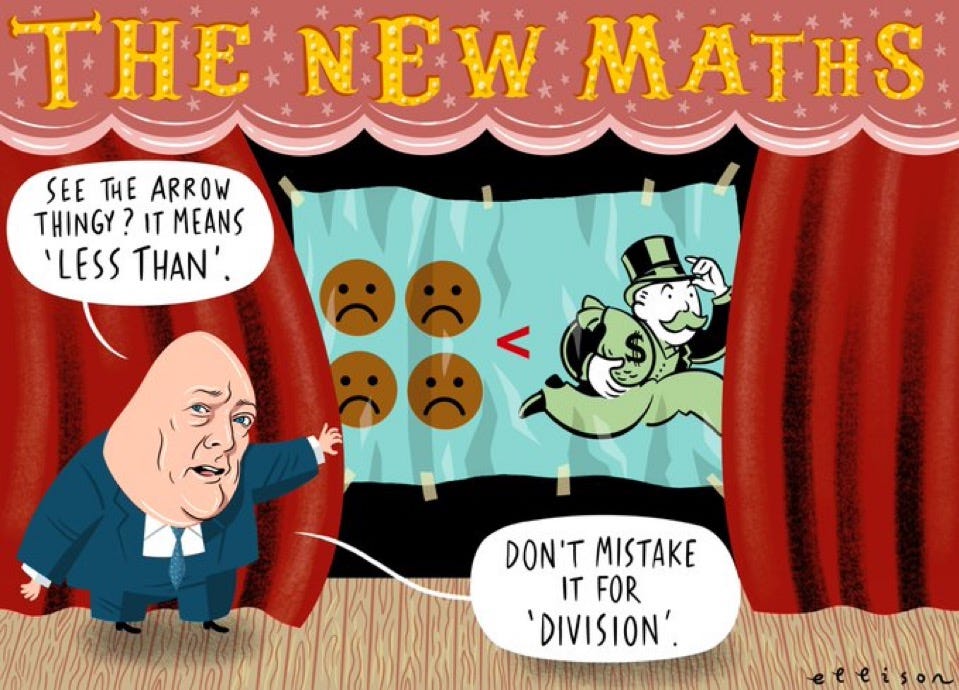
Timeline-cleansing nature pic
Standing on one leg is quite easy*
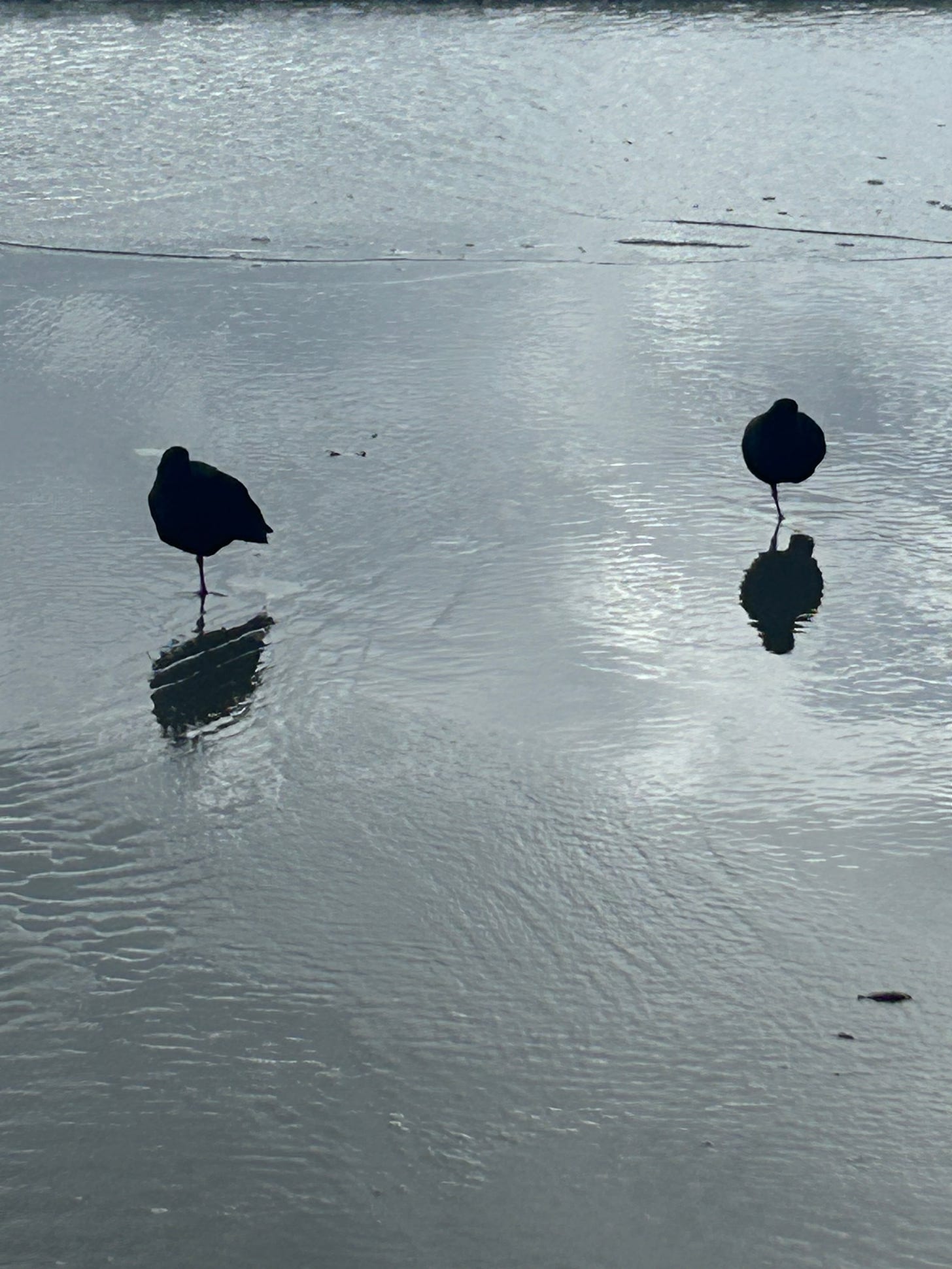
Mā te wa
Bernard



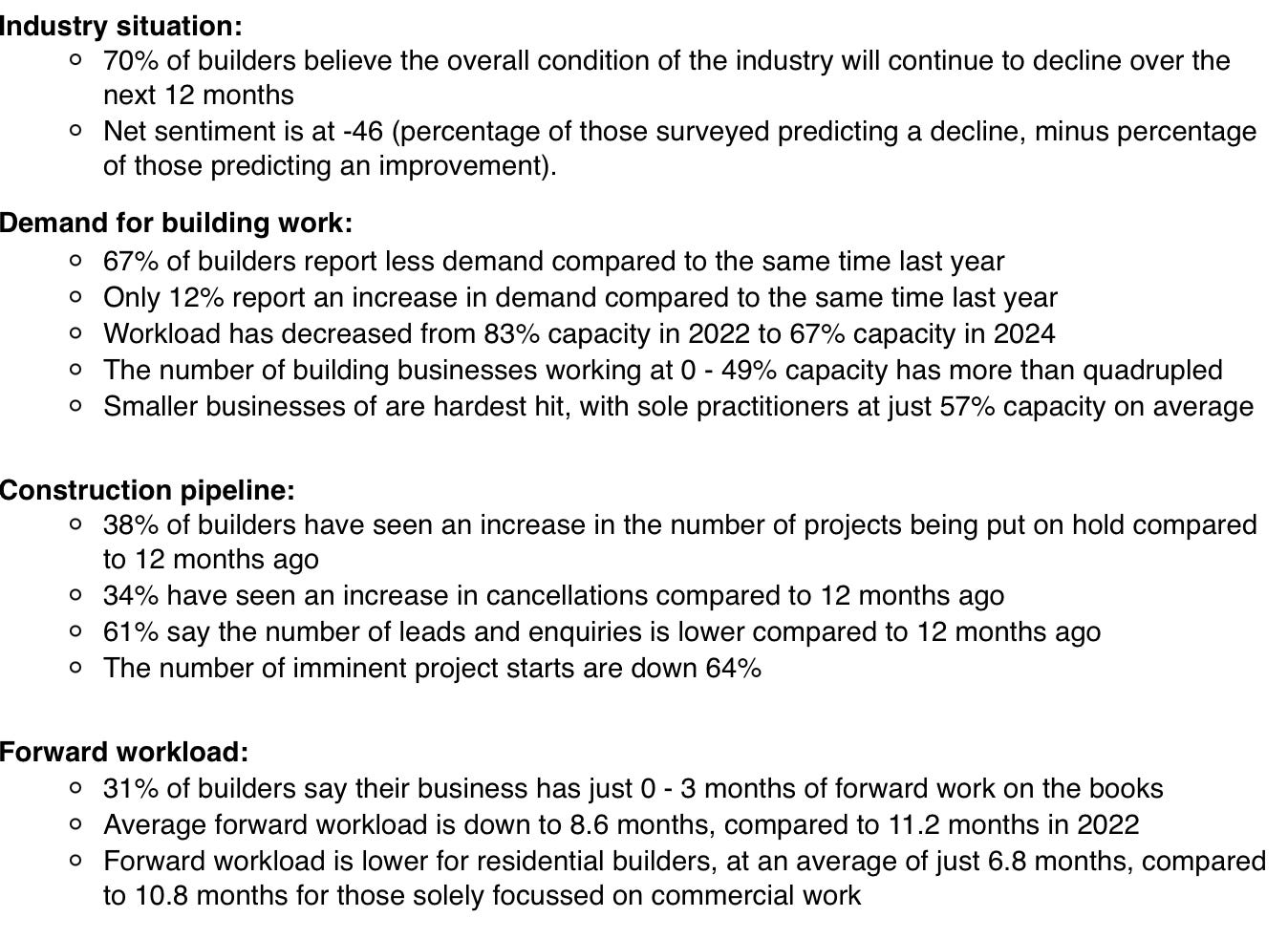
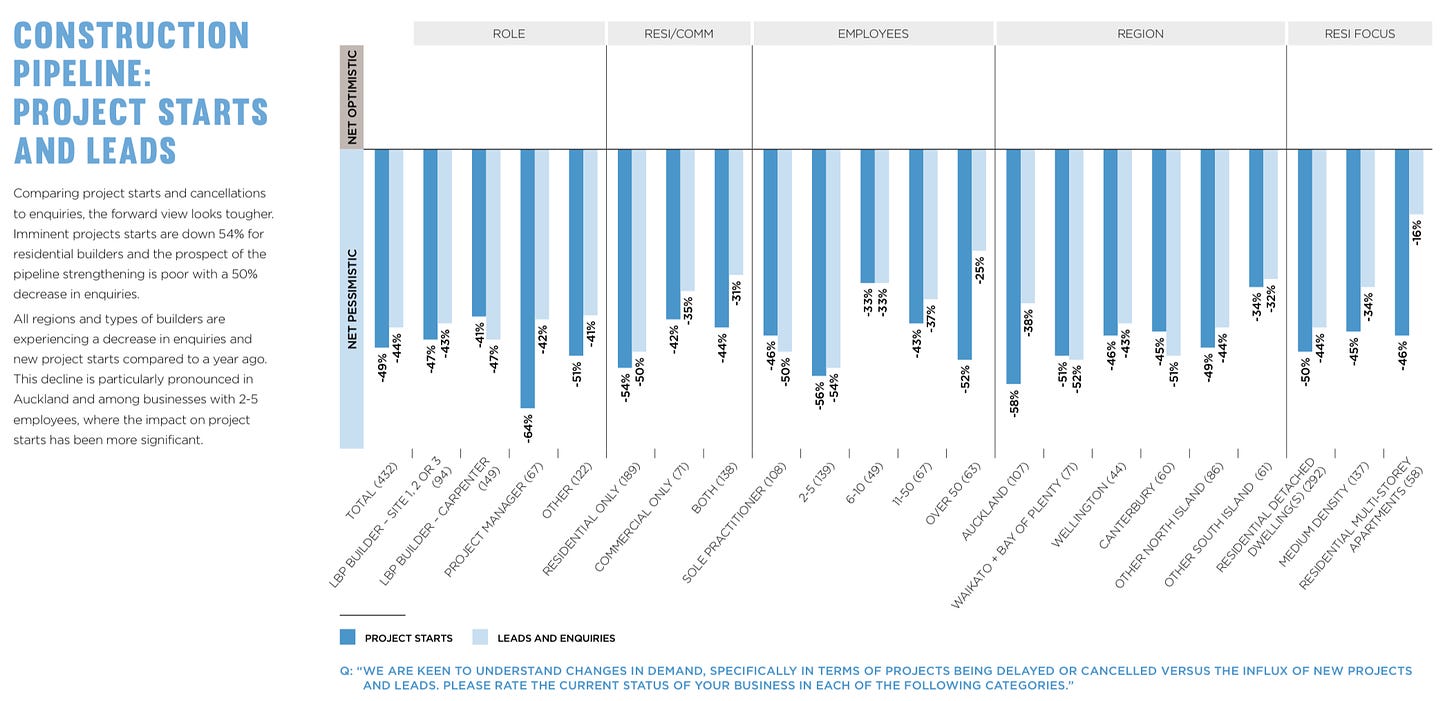









Share this post